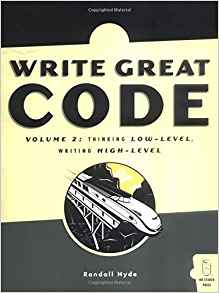The Art of Great Code: Crafting Elegant and Efficient Software
Introduction
Writing great code is a blend of technical skill, artistic flair, and a deep understanding of software principles. It's more than just making the code work; it's about creating code that is readable, maintainable, and efficient. This white paper explores the key elements of great code and provides practical tips for writing software that stands the test of time.
Core Principles of Great Code
- Readability:
- Consistent Formatting: Adhere to a consistent coding style guide to improve readability.
- Meaningful Naming: Use descriptive names for variables, functions, and classes.
- Comments: Add comments to explain complex logic or non-obvious code sections.
- Modularity: Break down code into smaller, well-defined functions and modules.
- Maintainability:
- Testability: Write unit tests to ensure code correctness and facilitate future changes.
- Loose Coupling: Minimize dependencies between modules to improve flexibility.
- High Cohesion: Group related functionality within modules to enhance maintainability.
- Error Handling: Implement robust error handling mechanisms to prevent unexpected failures.
- Efficiency:
- Algorithm Selection: Choose efficient algorithms and data structures for the task at hand.
- Optimization Techniques: Identify and optimize performance bottlenecks.
- Memory Management: Minimize memory usage to improve performance and avoid memory leaks.
- Security:
- Input Validation: Validate user input to prevent malicious attacks.
- Secure Coding Practices: Follow secure coding guidelines to avoid vulnerabilities.
- Regular Updates: Keep software and dependencies up-to-date with security patches.
Practical Tips for Writing Great Code
- Learn from Others: Study the code of experienced programmers and learn from their best practices.
- Practice Regularly: The more you practice, the better you'll become at writing clean and efficient code.
- Refactor Your Code: Continuously improve your code by refactoring it to make it more readable, maintainable, and efficient.
- Use a Version Control System: Use tools like Git to track changes, collaborate with others, and revert to previous versions if needed.
- Write Clean and Concise Code: Avoid unnecessary complexity and write code that is easy to understand.
- Test Your Code Thoroughly: Use unit tests, integration tests, and end-to-end tests to ensure code quality.
- Learn from Your Mistakes: Analyze your mistakes and learn from them to avoid making the same mistakes in the future.
Conclusion
Writing great code is an art that requires dedication, practice, and a deep understanding of software principles. By following the guidelines outlined in this white paper, you can create software that is not only functional but also elegant and efficient. Remember, great code is not just about the technical aspects; it's also about the human element of readability and maintainability.
References:
- Clean Code: A Handbook of Agile Software Craftsmanship by Robert C. Martin
- The Pragmatic Programmer: From Journeyman to Master1 by Andrew Hunt and David Thomas
- The Art of Readable Code by Dustin Boswell and Trevor Foucher
- Refactoring: Improving the Design of Existing Code by Martin Fowler
By embracing these principles and techniques, you can elevate your coding skills and create software that stands the test of time.



